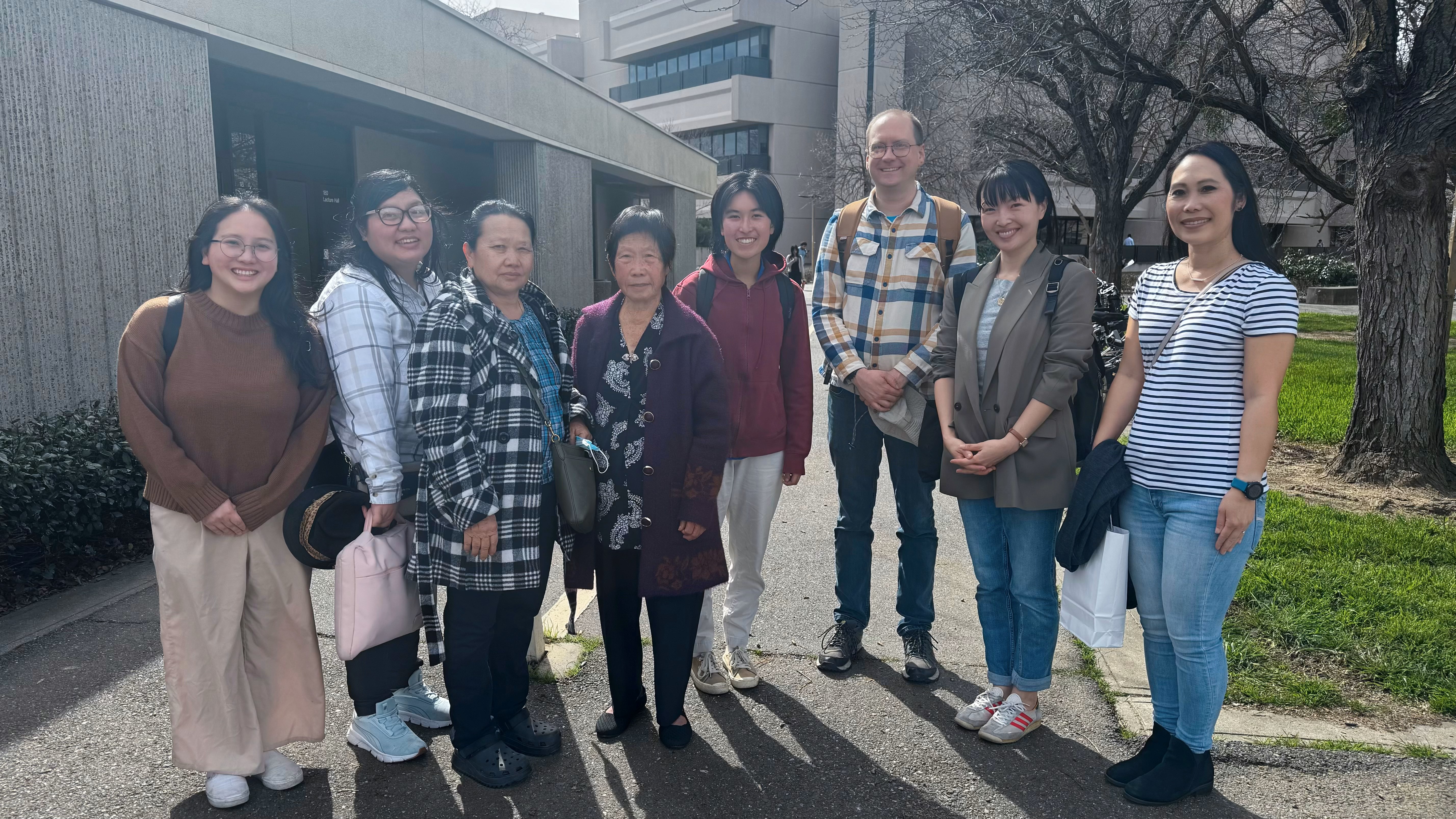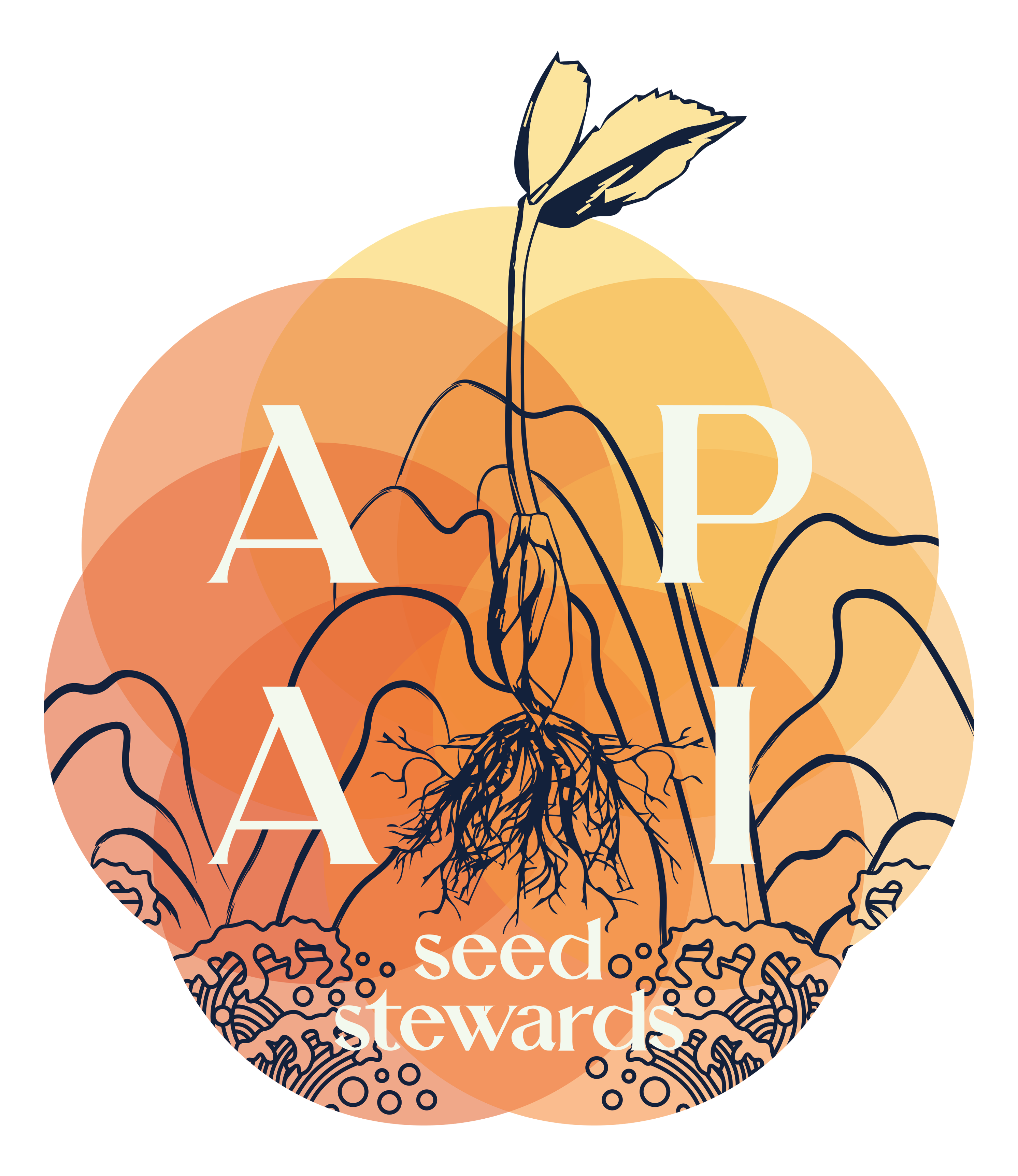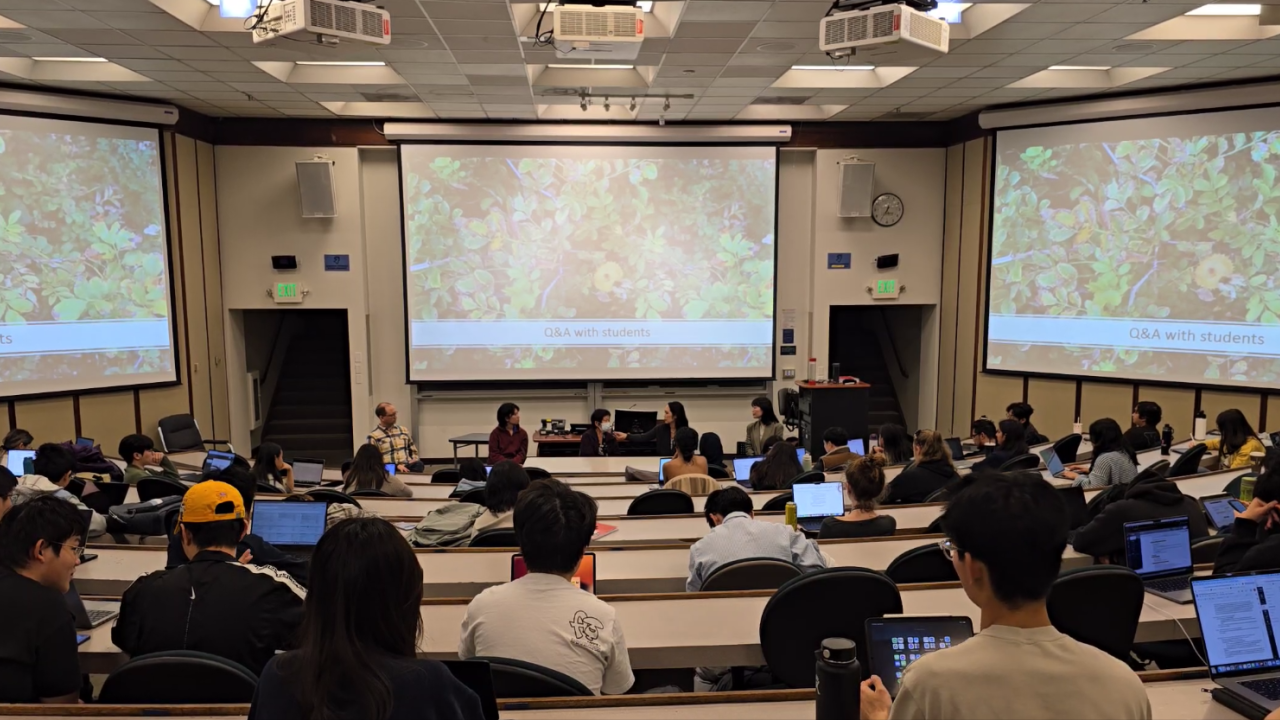
Mao Lee’s visit to speak with students in Asian American studies class
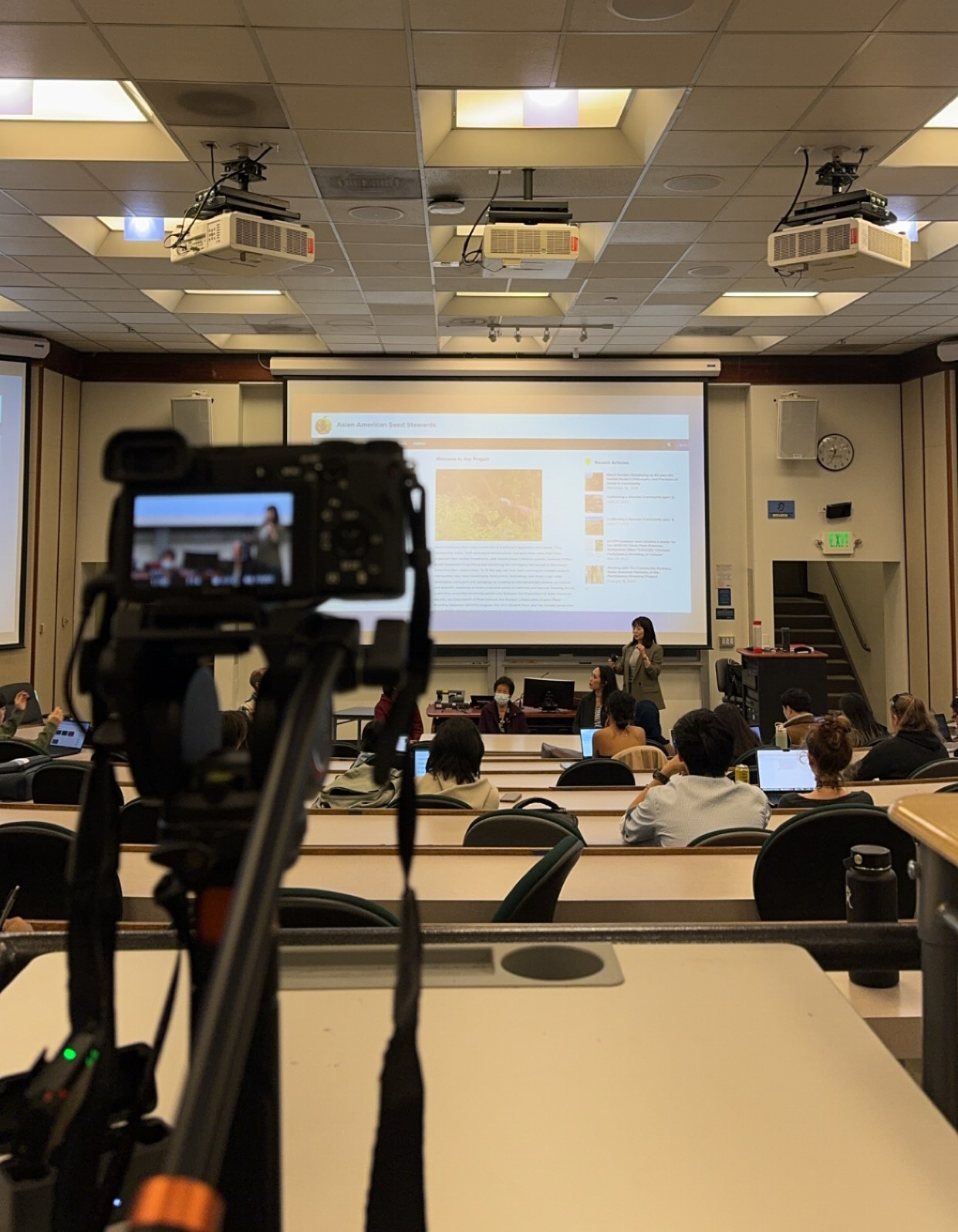
On February 24, Mao Lee made a classroom visit to share her story with Dr. Ga Young Chung’s lower division ASA 002 class, Contemporary Issues in Asian American Studies, in a large undergraduate lecture hall of 180 students.
For the duration of the 80 minute class time, the panel discussion featured Mao Lee as a Hmong Herb Knowledge Holder and Healer, her daughter Chee, a Second Generation Hmong American, Will McMahan, Ph.D. student in Horticulture & Agronomy, and Christy Vong, Undergraduate Research Assistant at the Asian American Seed Stewards Lab. Yee Thao, a second-generation Hmong American graduate student and documentary filmmaker from Sacramento recorded and photographed the event.
In the opening of the panel discussion, Dr. Ga Young Chung shared how the project grew to be; and the panelists shared how they got to be involved with bringing their different backgrounds to this collaborative project.
In the Q & A, Mao was asked questions first and then to the other panelists. Mao said that she was happy to see so many students in front of her. It was her first time seeing them, and a first experience for her. Chee was happy for her mother to have a shining moment sharing her wealth of information and knowledge she holds.
Mao responded to the guiding questions, which her daughter Chee translated: What does (Hmong) herb medicine mean to you? Where/how did you learn about herb medicine? What do you want to share or ask the young people in front of you? What seeds do you hope to save?
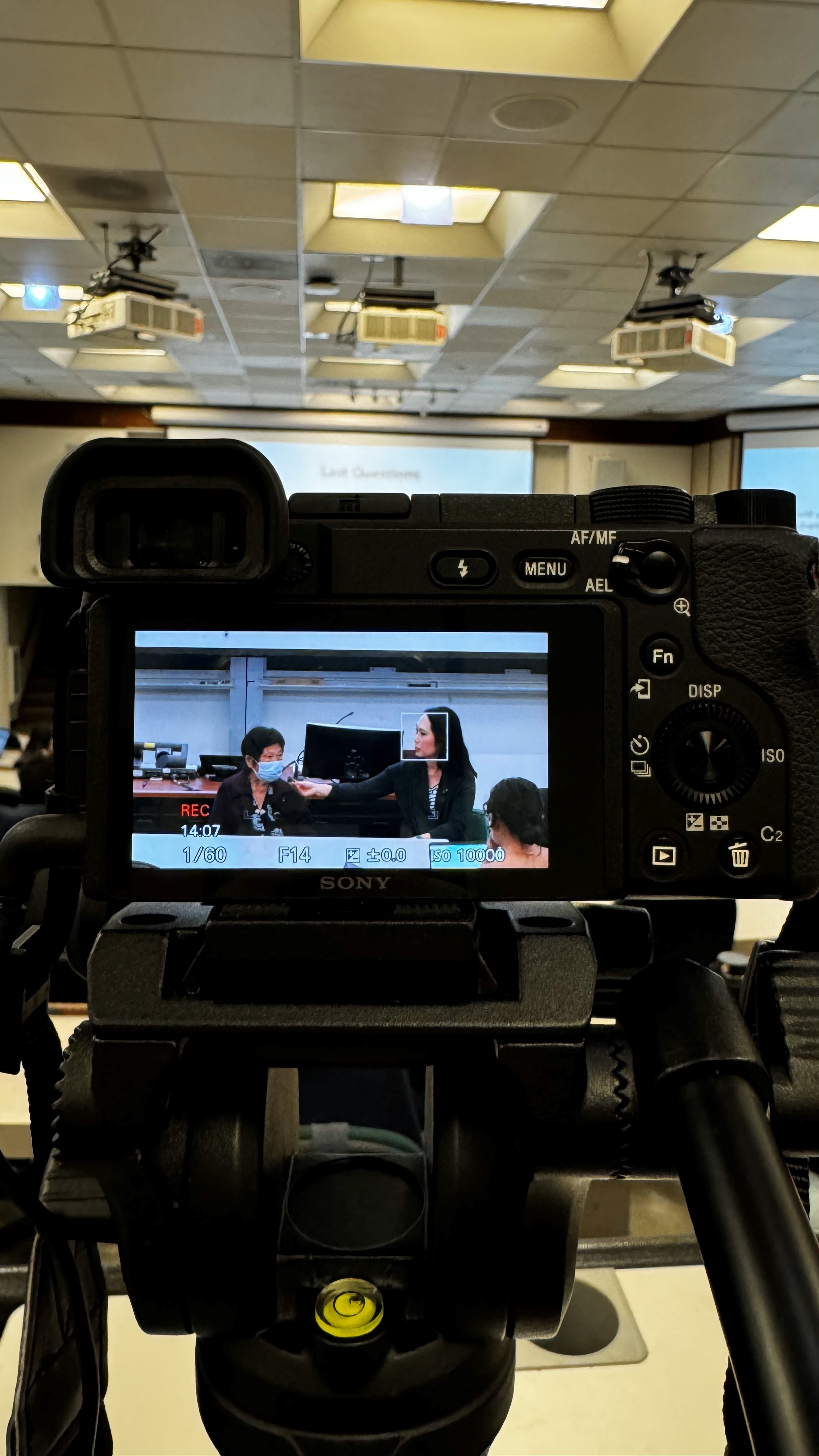
Mao shared that she learned herbal medicine from her mother, who taught her about the plants, their purposes, and use, as they did not have convenience stores or hospitals back when she lived in the jungle in Laos. While Mao is very knowledgeable about different herbs and plants and their uses, she disclaimed that the herbal medicines are preventative; she may not completely heal one, but they may help some. “I use the plants according to my mother's knowledge and how I was supposed to use them. I help people who are in need,” she said.
Mao shared that there are a lot of seeds that she likes to keep, but she would like to keep turmeric the most—which is grown with a rhizome—because it helps with the appetite, coughing, and more health benefits.
The three panelists answered questions too.
Chee spoke about her experience growing up aware that her mother often had people, including relatives, friends, and families stay over at their home for days or weeks. “She would never accept money and she always let them know, I'm not a doctor. I'm here to help you. And I always took it as, she has guests that she’s taking care of, and it's through her love and her kindness that is helping heal them.” Chee said that when Mao started living with her in Sacramento around 2009, Mao met Judy Tretheway at a local community garden, Confluence Gardens, where she was able to grow many medicinal herbs, and opened Chee’s eyes further to her wealth of knowledge.
Chee shared that she is still learning about herbal medicine. Her goal has been to help document her mother’s knowledge for next generations, including for her two young children who also share a home with Mao. “I really do feel like this is rich knowledge—especially because Western medicine, when you go to the doctor, you get prescriptions, you go to the pharmacy—that this is very rich cultural history that I want to maintain and that my kids will have someday. So that they can value from back in Laos what our ancestors used and what they had.”
Will shared about how their role in this project is to help document from the plant specific angle. They are positioned as a PhD student from a public university serving California, which is very diverse, including where one of the largest Hmong communities in the U.S. live around—the Central Valley, Merced and Stanislaus County, and here in the Sacramento area, who grow a diversity of plants with nutritional and medicinal value. Will is also writing their dissertation on jute mallow, which is a plant used globally and grown by some Hmong farmers. “All of the resources that are available to farmers here are about big commercial ag crops like tomatoes or corn. There's no guidance about how to grow jute mallow, there's no guidance to grow all of these plants…Mao is like a pillar of her community as a healer because she knows this knowledge and plants.” Will is interested in Hmong herbs because of people like Mao and her impressive and vast plant knowledge.
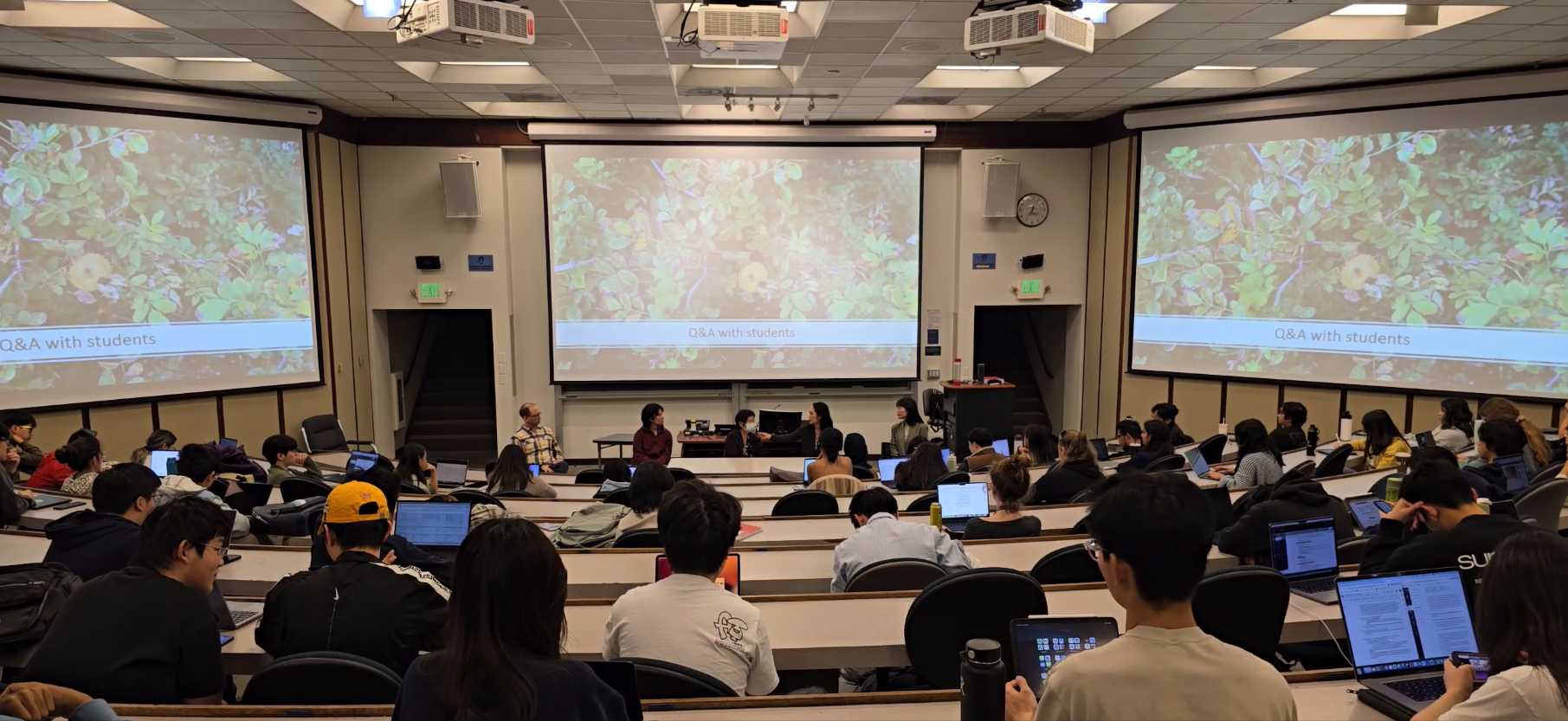
Christy shared about how she got into this project because of her interest in storytelling, food, food justice, and the opportunity to be part of it to gain exposure and document it. When asked about what she hoped to take away from this experience, she reflected on wanting to hold the care and love she was touched by with Mao. This includes the practice of knowledge sharing for anti-colonial community benefit and finding ways in their life to incorporate parts of food sovereignty and connection to cultural herbs and plants in her relationships with people and food in their life.
Yee was invited to share her perspectives as a documentary filmmaker and scholar with her own Hmong background. Yee sees that conventional ideas of citizenship are challenged by the deep relations that Hmong people have with one another. “I am interested in seeing how Hmong people are not exactly tied to a nation, state or country, but are tied to one another, instead of tied to land…looking at how these Hmong seeds and food relate to the precarities of citizenship but also specifically, how we can strengthen our relationship with one another as people,” she said. “This Hmong example of agriculture is a form of beyond-preservation, movement-making in my opinion…It's also about memory making and seeing ourselves as active agents of this process.” Yee also brought in her parents to the classroom, relating with her own journey of re-engaging with her ethnic identity and history; she added that her mother has her own ancestral knowledge and experiences with growing herbs as well.
There was also a Q&A section that opened the floor to students: One asked about Mao’s perspective on “Western” medicine and “Eastern” medicine, sharing that they have disagreements with their father about the two; and one student, who is involved in the Hmong clinic of the Paul Hom Asian clinic, asked Mao’s advice for patients who are hesitant to be treated by Western medicine. Mao’s perspective is encouraging the being open to the benefits of both, as Western medicine can identify the issues with technology to see what is going on inside the body, and herbal medicine is helpful when the roots of problems to address are known.
Afterwards, students wrote on notecards for five minutes to share with Mao what the most interesting thing they learned was, and a message they would like to bring to her. At the end of class several people came up to Mao and Chee themselves to engage with her.
This classroom event was an amazing intergenerational, cross-cultural connection, where family and community members were present in an academic space usually not made for them, that facilitated dialogue with younger generations of many Asian and Asian American students. This exposure with Mao as a Hmong herb knowledge holder and healer eager to share more vastly with communities of care, reached across disciplines, as many students in the class were outside of the Asian American Studies major or minor.
